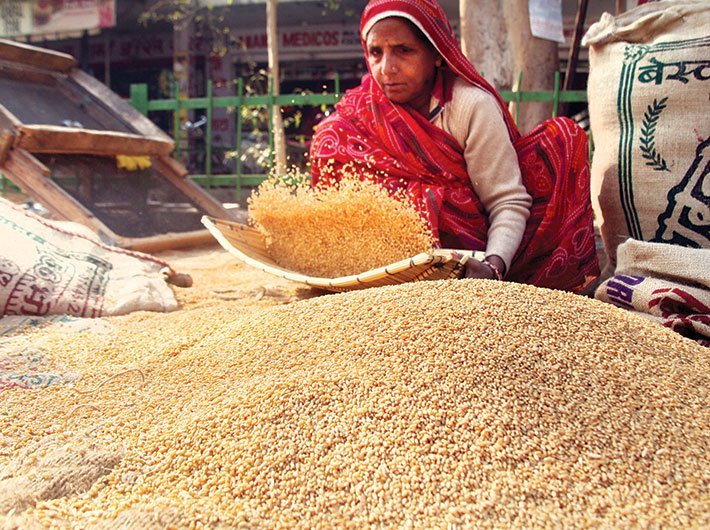Most severe reductions in food production and increases in food prices occur in Africa and India, which account for a large share of the world’s poor
The rapid transformation of farming and food systems to cope with a warmer world, such as adopting climate-smart practices, particularly to curb greenhouse gas emissions, is critical for hunger and poverty reduction, the United Nations agriculture agency said in a report.
The State of Food and Agriculture 2016 (SOFA): Climate change, agriculture and food security said that under the worst-case scenario, much of the forecast increase in the number of poor occurs in Africa (43 million) and South Asia (62 million).
Reduced income in the agricultural sector explains the largest share of increased poverty as a result of climate change. This is because the most severe reductions in food production and increases in food prices occur in Africa and India, which account for a large share of the world’s poor. The second most important factor leading to increased poverty is health impacts, followed by the impacts of higher temperatures on labour productivity.
The report stated that index-based insurance, which pays out benefits on the basis of indices such as rainfall, area-average yields and vegetation conditions measured by satellites, is being tested as a risk-mitigation tool in several countries.
When an index exceeds a predetermined threshold, farmers receive a quick pay-out, delivered in some cases via mobile phones. However, index-based insurance by itself does not provide a full solution to climate-related risk.
“For example, India’s Weather-Based Crop Insurance Scheme may have prompted a shift among participants towards more profitable but higher risk farm production systems, thanks to subsidized premiums. Uptake of index-based insurance has been generally limited because it usually involves high transaction costs. Another problem is a lack of trust in insurance institutions.”
The report went on to say that multiple stressors greatly affect animal production, reproduction and immune status. “Research in India found that a combination of climate-related stresses on sheep – for example, excessive heat and lower nutritional intake – had severe impacts on the animals’ biological coping mechanisms.”
“There is no doubt climate change affects food security,” said the director-general of the Food and Agriculture Organization (FAO), José Graziano da Silva.
“What climate change does is to bring back uncertainties from the time we were all hunter gatherers. We cannot assure any more that we will have the harvest we have planted,” he added.
That uncertainty also translates into volatile food prices. “Everybody is paying for that, not only those suffering from droughts,” Mr. Graziano da Silva said.
It is agriculture, including forestry, fisheries and livestock production, which is contributing to a warmer world by generating around a fifth of the world’s greenhouse gas emissions. Therefore, agriculture must both contribute more to combating climate change while bracing to overcome its impacts, the report said.
Without action, agriculture will continue to be a major contributor to global greenhouse gas emissions. But by adopting climate-smart practices and increasing the capacity of soils and forests to sequester carbon, emissions can be reduced while stepping up food production to feed the world’s growing population, the report added.
The report provides evidence that adoption of climate-smart practices, such as the use of nitrogen-efficient and heat-tolerant crop varieties, zero-tillage and integrated soil fertility management would boost productivity and farmers’ incomes. Widespread adoption of nitrogen-efficient practices alone would reduce the number of people at risk of undernourishment by more than 100 million, the report estimates.
“2016 should be about putting commitments into action,” urged Mr. Graziano da Silva, noting the international community last year agreed to the Sustainable Development Goals (SDGs) and the Paris Agreement on climate change, which is expect to come into force early next month. Agriculture will be high on the agenda at the 22nd Conference of the Parties to the UN Framework Convention on Climate Change (UNFCCC), known as COP 22, in Morocco starting on November 7.
Read the full report here
